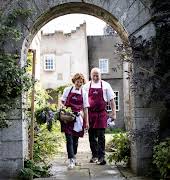By Lauren Heskin
31st Jan 2018
31st Jan 2018
I’ve been wondering when the #MeToo movement is going to land on Irish soil. There was a minor skirmish over reports of Michael Colgan’s treatment of his female staff during his lengthy time as director of The Gate Theatre. But frankly there have been more articles about his suing of the newspaper who published the story for defamation than the story itself.
It is undoubtedly easier to critique topics that don’t directly influence our lives. It’s easier to discuss and tease out issues when they are simply ideas in our heads rather than a reality here at home.
These questions have been brought into sharp relief this week with the Belfast trial of four friends for an alleged rape of a then-19 year-old woman in 2016. Two of the men, Paddy Jackson and Stuart Olding, have been charged rape. Both are professional rugby players for Ulster and Ireland. Another, Blane McIlroy, is charged with one count of exposure and the final, Rory Harrison, is accused of perverting the course of justice and withholding information.
The woman alleges that while attending a party at Paddy Jackson’s house, after some consensual kissing between her and Jackson she made it clear it would go no further. She recounts that she later decided to leave and went upstairs to his bedroom to retrieve her purse where he forced himself upon her and was joined by Stuart Olding, who forced her to give him oral sex, while Jackson raped her. During an interruption by McIlroy, who came in completely naked and apparently hoping to join in, she grabbed her trousers and left the house. They deny all charges against them and claim it was entirely consensual.
Reading the WhatsApp exchange between four friends the day after the alleged rape occurred turns my stomach. Read aloud in court yesterday, it was as follows:
Stuart Olding: “We are all top shaggers.”
Stuart Olding: “There was a bit of spit roasting going on last night fellas”
Paddy Jackson: “There was a lot of spit”
Stuart Olding: “It was like a merry-go-round at a carnival.”
Whether or not the alleged sexual encounter was consensual or not, this exchange is horrifying in itself for its complete lack of respect, understanding and empathy for the woman involved. And I don’t care if it did happen in an actual locker room or not (looks like President Trump is in good company), it reflects a disgusting attitude toward another human being.
Rugby is probably one of the highest forms of celebrity here in Ireland. Easily one of our most successful sports, it’s said that rugby is a savage’s game played by gentlemen, while soccer is the reverse. But is it really? As a fan of the sport at both club and country level, it sometimes feels that we give athletes, and specifically rugby players, a carte blanche because of the success and accolades they bring to our little isle.
It’s a male-dominated sphere where physical prowess is championed above all else and encourages a team mentality that unfortunately has the potential to turn toxic – look no further than the widely reported sexual misconduct and violence against women within American football for examples. This is certainly the most high-profile case of the professional era, but it is by no means the first accusation of sexual misconduct against an Irish or Irish-based rugby player. There has been plenty of conversation amongst young Irish women, a whisper network if you will, about the culture towards women within our professional clubs. If you haven’t witnessed it on a night out, you’ve been warned about it. At best it’s brushed off with a “boys will be boys” attitude and at worst… well, you can read the account the alleged victim gave in court today here.
This horrific case is an opportunity to cast a critical eye over what this says of the professional sport culture in Ireland, and Irish society as a whole. A Weinstein-esque debate cannot be purely penned into the Hollywood Hills. It is happening much closer to home, whether we want to acknowledge it or not. We need to start asking the hard questions of our selves, friends, communities, clubs and workplaces, as we have demanded of the American film and TV industry.






















